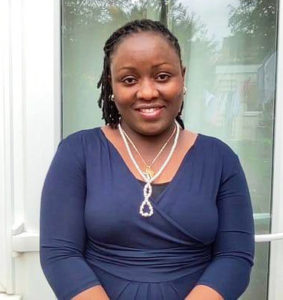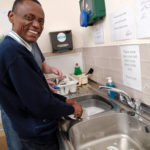Tips from Harriet Ngugi: a call to prayer, humility, training, and hope
By Harriet Ngugi
 Reverse mission has sparked a great deal of interest, ranging from excitement and passion to skepticism and dismissal, both in Christian and secular spaces. A BBC television programme aired a few years ago featured some reverse missionaries, terming them ‘idealistic’. For most in the Global South, once the initial shock about the decline of Christianity in the West wears off, the next question is: What should we do about it?
Reverse mission has sparked a great deal of interest, ranging from excitement and passion to skepticism and dismissal, both in Christian and secular spaces. A BBC television programme aired a few years ago featured some reverse missionaries, terming them ‘idealistic’. For most in the Global South, once the initial shock about the decline of Christianity in the West wears off, the next question is: What should we do about it?
Much enthusiasm, momentum and vision is growing for the possibilities of a great harvest of peoples and revival of the Western church through the participation of missionaries from Africa, now home to the largest number of Christians globally. But though African diaspora Christians are numerically strong, not all recognize the great missionary privilege before them, so a main task is to mobilize and envision them to see and rise to the challenge.
Some are skeptical due to barriers, including cultural differences and a painful history of racial prejudice. While all missions comes with challenges, a closer look reveals unrealistic expectations and lack of preparedness. Jesus gave the illustration of a builder calculating the cost of his project So, too, African missionaries must count the cost and prepare thoroughly if they hope to be faithful and fruitful. So, how does one prepare and equip oneself?
Firstly, prayer. As Samuel Zwemer put, “The history of missions is the history of answered prayer.” Leadership is needed in concerted, persistent, mission-focussed prayers. This calls for intentionally breaking out of our African church bubbles to pursue a greater purpose. Powerful missional prayer networks could result from this unity and collaboration.
Humility is vital to all missions. Taking on the attitude of a servant, as modelled by Jesus (Phil. 2:3-8), is especially difficult where racial prejudice and social marginalization are daily realities. Standing against injustice is indeed part of missions; however, African missionaries are not exempt from taking on Christ’s attitude of self-emptying service with confidence in God.
Cross-cultural training is essential. The fact that we speak European languages and that Western culture dominates the world may give us the impression that we understand the West enough to be effective. This cannot be further from the truth. Interpreting Western culture through an African worldview only increases misunderstandings. Also, many least reached people groups live in Western cities, each with a distinct culture. Let us assume the attitude of learners and study culture with the same diligence of all effective missionaries.
Finally, God’s people are people of hope, and hope is often characterized by waiting. The West has been seen as a hard place to evangelize. Afro-diaspora missionaries will need to take a long view of their mission marked by strategy, consistency, perseverance and diligence, with faith that even the hardest ground in world evangelization finally breaks.
Harriet and husband Sam Ngugi, from Kenya, reside currently in the UK. Harriet servew with Pioneers. Her husband, Sam, founded Missions Campaign Network, a missions mobilization ministry in East Africa.

Lawrence and Elizabeth Jah arrived in Glasgow, Scotland, in mid-2021, sent by Evangelical Church Winning All (ECWA) in Banjul, The Gambia. Their assignment is to evangelize among refugees and asylum seekers from Muslim backgrounds and to disciple Muslim background believers.
Lawrence has been learning about Scottish culture from his Senior Pastor, Alan. This picture has Lawrence washing dishes – something he did not do in The Gambia, but he is willing to learn what it means to serve cross-culturally. He is learning that in Scottish culture men – even pastors and reverends – wash dishes.
